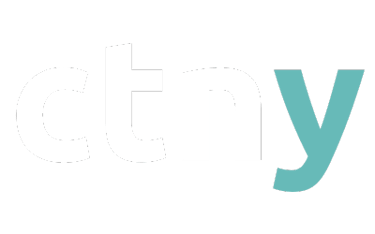Building a Business That Doesn’t Rely on You Every Day
Most founders get trapped in the day-to-day. Learn how to build a business that runs without you, with systems, delegation, and automation.
3 min read

For many founders, the dream is freedom: running a business that supports your life, not one that consumes it. Yet, in reality, most small business owners become the bottleneck. Without them, sales stall, customer service slows, and operations grind to a halt.
If you feel like you’re always “on call” for your business, it’s time to rethink your model. Building a business that doesn’t rely on you every day isn’t just possible – it’s the only way to create something sustainable, scalable, and sellable.
Why Founders Get Stuck in the Day-to-Day
Most businesses start with the founder doing everything: finding customers, delivering the product, managing finances, even ordering printer ink. At first, this scrappiness works. But as the business grows, it creates dependency – and that dependency is on you.
When you become the single point of failure, two things happen:
Growth stalls because you can’t keep up.
You burn out because the business can’t function without you.
The Shift: From Operator to Architect
The key to breaking free is shifting your role. Instead of being the operator (doing the work), you become the architect (designing how work gets done). That shift starts with systems, people, and boundaries.
Step 1: Document and Systemise
If every task lives in your head, you’ll never escape the grind. Start by documenting repeatable processes. This doesn’t need to be complex – a shared Google Doc, Notion page, or project management tool can do the job.
Examples of processes to capture:
How customer enquiries are handled.
How invoices are sent and followed up.
How sales calls are booked and tracked.
How fulfilment or delivery works.
Pro tip: Record your screen while completing tasks and store the videos. They can be turned into step-by-step guides later. You can use Loom or Scribe to help you do this.
Step 2: Delegate and Empower
Delegation is more than outsourcing tasks – it’s about giving people ownership. Start with low-value, time-consuming tasks (like admin, scheduling, or bookkeeping) and gradually delegate higher-value work.
Delegation mindset shifts:
Don’t just hand over tasks, hand over responsibility.
Resist the urge to micromanage – let your team problem-solve.
Use tools like Asana, Trello, or Monday.com to track progress instead of constant check-ins.
Step 3: Automate Where You Can
Technology is your silent team member. Many repetitive tasks can be automated with the right tools.
High-impact areas to automate:
Lead capture: Forms and chatbots feeding directly into your CRM.
Email marketing: Automated nurture sequences for new leads.
Payments and invoicing: Tools like Xero, QuickBooks, or Stripe.
Scheduling: Tools like Calendly to eliminate back-and-forth emails.
Step 4: Build a Leadership Layer
As your business grows, you’ll need trusted people who can run it without your constant involvement. This doesn’t necessarily mean expensive hires right away – even appointing a “team lead” in customer service or operations can free up your bandwidth.
A leadership layer ensures the business can handle day-to-day decision-making without everything bouncing back to you.
Step 5: Redefine Your Role
Once you’ve put systems and people in place, redefine your role around the activities only you can do. For most founders, that’s strategy, vision, and high-value relationship building.
Ask yourself: If I stepped away for two weeks, would the business still run? If the answer is no, you still have work to do.
The Benefits of a Self-Sustaining Business
Freedom: Take real holidays without checking your inbox every hour.
Scalability: A business that runs on systems and people, not your time, can grow faster.
Value: Investors and buyers pay more for businesses that aren’t dependent on the founder.
Energy: You get to spend more time on strategic, high-impact work – the reason you started in the first place.
Actionable Takeaways
Start documenting processes this week.
Identify one task you can delegate in the next 30 days.
Audit your business for automation opportunities.
Define your role around strategy, not operations.
Conclusion: Build for Freedom, Not Dependence
Your business should serve your life, not the other way around. By systemising, delegating, automating, and building a leadership layer, you can step out of the daily grind and build something sustainable.
If you’d like support in designing a business that grows without draining you, book a call with us today ctny.co.uk.
